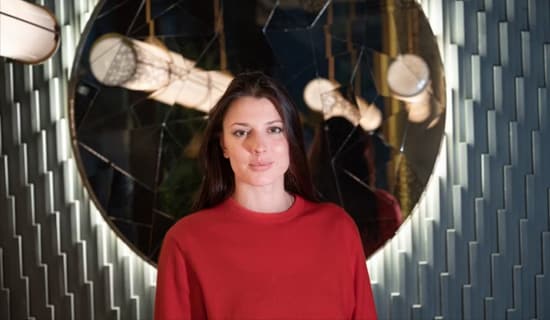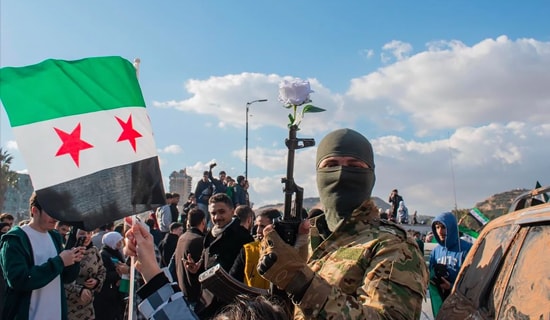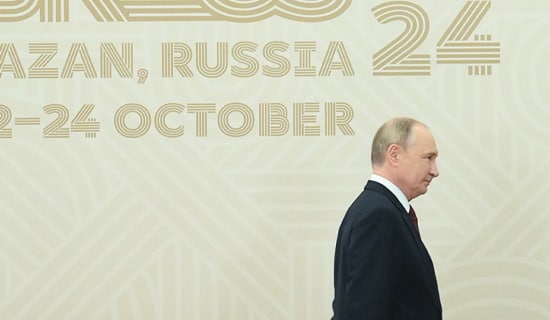In the December 4, 2009 episode of the children's television show "Pioneers of Tomorrow," on Hamas's Al-Aqsa TV, program host Saraa Barhoum and teddy-bear character Nassur discuss the "values, morality, and good manners" promoted by "education in Islam," as opposed to the hatred for and killing of Arabs taught by the Jews. (To view this clip on MEMRI TV, visit http://www.memri.org/legacy/clip/2291)
MEMRI has been following "Pioneers of Tomorrow" since an April 2007 episode discussing "defending Al-Aqsa with our souls and our blood" and "martyrdom."
· To view past episodes of Pioneers of Tomorrow shows, visit http://www.memritv.org/subject/en/823.htm.
· To view the MEMRI TV page for Al-Aqsa TV, visit http://www.memritv.org/subject/en/333.htm.
HELP STOP INCITEMENT & CHILD Indoctrination IN Palestinian MEDIA
Send an E-TRIBUTE Card for the holidays, and support MEMRI's work. Your card will be delivered with a link to a specially designed webpage where your recipient will find video and accompanying MEMRI information highlighting the project to which you have donated in their honor. To send an E-Tribute Card, visit https://secure3.convio.net/memri/site/Donation2?df_id=1260&1260.donation=form1
Since MEMRI's inception, we have monitored, translated, and analyzed material from the Palestinian media, Palestinian sermons, and the Palestinian educational system, all of which indoctrinate children to hatred. MEMRI research in this area is relied upon by Western media, legislatures, and governments. To send an E-Tribute Card, visit https://secure3.convio.net/memri/site/Donation2?df_id=1260&1260.donation=form1
Program Host: "In Islam... We Teach Our Children Values, Morality, and Good Manners"

Child host Saraa Barhoum: "Today, we will talk about education in Islam, and how we teach our children values, morality, and good manners, Nassur."
Nassur the stuffed bear: "That's right, dear children. Saraa, perhaps we will watch a cartoon, and see how children are being educated."
Saraa Barhoum: "Okay, let's watch the film, and then we will return. Stay with us." [...]
Animated film shows a Jewish boy, with side-curls and yarmulke, walking in a pleasant neighborhood next to a high fence, and dropping some money. An Arab boy stops and picks it up.
Arab boy: "Hey, stop."
Jewish boy: "Yes, what is it?"
Arab boy: "You dropped some money. It's yours."
Jewish boy: "Oh? It's really mine. Tell me, who are you?"
Arab boy: "Me? My name is Muataz, and I'm a Palestinian Arab."
Jewish boy: "You're an Arab? Are you sure? And a Palestinian, on top of it?"
Arab boy: "Yes, I'm sure. Why?"
Jewish boy: "But we were taught at school that the characteristics of the Arabs..."
Flashback to classroom.
Teacher to Jewish Schoolboys: "Get Rid Of [the Arabs] Before They Kill You"

Teacher: "My dear children, the characteristics of the Arabs are: They are cross-eyed, their faces are pockmarked, their noses are crooked, they have evil features, their moustaches are curly, they have deformities, and their teeth are yellow and rotten. These Arabs are barbaric. If they see you, they will kill you. That's why we should get rid of them, before they kill you."
End flashback.
Arab Boy: "Ask Your Grandfather Whether He Ever Had a Better Life Than In the Days of Islam"
Jewish boy (to Arab boy): "But I don't see anything of what the teacher told us."
Arab boy: "You had better ask your grandfather whether he ever had a better life than in the days of Islam."
Jewish boy: "Can I ask you a question?"
Arab boy: "Go ahead."
Jewish boy: "Why did you give my money back to me, when you could have taken it?"
Arab boy: "That's what our religion teaches us – honesty."
Jewish boy: "But my big brother told me..."
Flashback to the boy sitting with his big brother.

Brother: "Let me tell you, dear, the Arabs are evil thieves. Let me tell you a story about the Arabs. Long ago, the Arabs were..."
End flashback.
Jewish boy (to Arab boy): "But I see it's not like that. Where do you live, and how did you get here?"
Arab boy: "I used to live on this land, which you people plundered. We used to have a garden and a beautiful home, but..."
Jewish boy: "But what? Go on."
Arab Boy: "You Killed My Father and My Mother In Order To Build This Wall"

Arab boy: "But you bulldozed our garden and destroyed our home. You killed my father and my mother in order to build this wall. I live over there, beyond the wall, with my grandmother.
Jewish boy: "But my father used to tell me that the Arabs slaughtered us, and that they wanted to kill every single Jew. That's why my father would train me..."
Flashback to father encouraging the boy as he fires a machine gun.
Father: "Shoot him, my dear! Shoot him! Before he eats you up!" (laughs)
End flashback.
Arab Boy: "We [Arabs]... Love Life, and Love to Serve"
Arab boy: "That's not true. We were created to serve Allah. We treat one another with compassion. We love life, and love to serve people."
Jewish boy: "Tell me what you've learned from your life."
Arab Boy: "Jerusalem is Ours... [Our Land] Was Taken By Force And Will Only Be Restored By Force"

Arab boy: "I've learned that Jerusalem is ours. I've learned to love my country and land. I've learned that we have a land that was taken by force, and will only be restored by force. I have learned justice and honesty."
Animated film ends.
Boy In Studio: "The Jews Teach Their Children To Slaughter, To Destroy, To Kill, and To Shoot, Whereas Our Children Are Taught Friendship [And] Loyalty"

Saraa Barhoum (to boy in studio): "Tell me, Ghassan, what has your mother told you about an Islamic education? What did she teach you?"
Nassur: "Ghassan, tell us what you learned from this [film], and the [difference] in education between us and our enemies."
Ghassan: "The Jews teach their children to slaughter, to destroy, to kill, and to shoot, whereas our children are taught friendship [and] loyalty, as well as the Islamic religion, and memorizing the Koran. Our children are taught not to steal and not to lie."
Saraa Barhoum: "And faith, and..."
Nassur: "And love of the homeland too."
Ghassan: "Yes, faith and love of the homeland."
Saraa Barhoum: "Very good."
Nassur: "Do you have a question?"
Saraa Barhoum: "Maybe we could hear him sing?"
Nassur: "Can I ask one more question?"
Boy In Studio: "My Father Beat Me... [He Beats Me] A Lot"


Saraa Barhoum: "Yes, go ahead."
Nassur: "Can you remember a day when you were sad and you cried?"
Saraa Barhoum: "For example, when somebody dear to you died."
Ghassan: "When my father beat me."
Saraa Barhoum (laughing): "Well, everybody... Obviously, your father wanted to teach you something."
Nassur: "Did he beat you only once?"
Ghassan: "No, a lot."
Saraa Barhoum: "Because he wanted to teach you manners and... If you made a mistake, you need to do better next time." [...]





